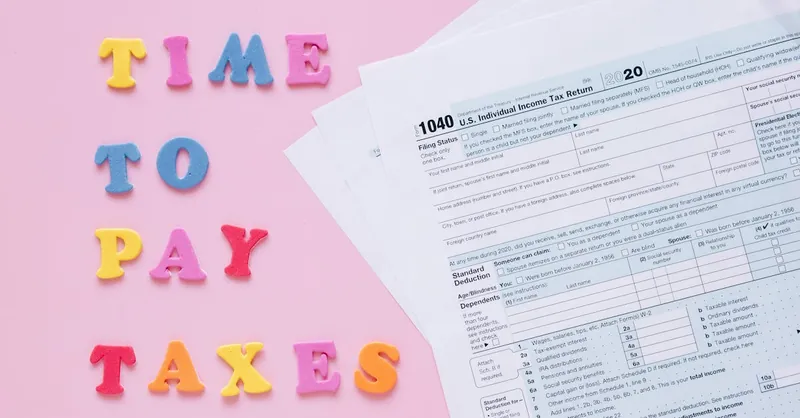Cryptocurrency Tax Tips for Beginners: Stay Compliant & Save
Category: Cryptocurrency
Master Cryptocurrency Taxes with Simple Tips for Beginners
Navigating cryptocurrency taxes can feel overwhelming, especially if you're new to Bitcoin, altcoins, or crypto mining. Whether you’re a casual investor, an active trader, or mining enthusiast, understanding your tax obligations is crucial to avoid costly mistakes and unexpected penalties. You probably arrived here seeking clear, straightforward guidance to confidently report your crypto earnings and losses without the usual legal jargon or confusion. This post is designed specifically for beginners who want reliable, practical tax tips tailored to their unique crypto activities. Unlike other complex guides, here you’ll find a logical, easy-to-follow roadmap covering everything from taxable events and record-keeping to reporting tools and tax-saving strategies. We understand that each transaction can bring new questions — from how to handle airdrops or staking rewards to what forms you need to fill out. Our goal is to empower you with actionable insights that help you stay compliant, optimize your tax situation, and keep more of your hard-earned crypto profits. Keep reading to learn the essentials every crypto enthusiast must know to master cryptocurrency taxes with confidence.
- Master Cryptocurrency Taxes with Simple Tips for Beginners
- Understanding Cryptocurrency Tax Basics
- Identifying Taxable Events: Purchases, Trades, Sales, Mining Rewards, Staking, Airdrops, and When You Owe Taxes
- Keeping Accurate Records: Best Practices for Tracking Transactions, Wallets, Exchanges, and Valuation Dates for Cost Basis
- Calculating Gains and Losses: Short-Term vs. Long-Term Capital Gains on Crypto Activities
- Common Tax Forms and Reporting Requirements: IRS Form 8949, Schedule D, and Correctly Reporting Crypto Transactions
- Tax Deductions and Credits Related to Crypto: What Expenses Can Offset Your Taxable Income?
- Tax Software and Tools for Cryptocurrency: Recommended Apps and Platforms that Simplify Crypto Tax Calculations and Filing
- Avoiding Common Tax Filing Mistakes: Pitfalls Beginners Often Make and How to Stay Compliant
- State Tax Considerations and International Crypto Taxation: Navigating Local and Global Crypto Tax Rules
- Planning and Strategies to Minimize Crypto Taxes: Tax-Loss Harvesting, Holding Period Optimization, and Gifting Cryptocurrency
Understanding Cryptocurrency Tax Basics
Before diving into the specifics of your tax reporting, it’s essential to understand the foundational cryptocurrency tax definitions and how tax authorities classify digital assets. Most governments, including the IRS in the United States, treat cryptocurrencies as property rather than currency for tax purposes. This classification means that every time you sell, trade, or use your crypto, it’s considered a taxable event similar to selling stocks or other investment property.
What Does Cryptocurrency as Property Mean?
Because crypto is recognized as property, the tax rules that apply to capital assets also apply to your cryptocurrencies. This has important implications:
- Capital Gains and Losses: When you dispose of your crypto—whether by selling it for fiat, trading it for another coin, or using it to buy goods or services—you must calculate your capital gain or loss based on the difference between your acquisition cost (basis) and the value at disposal.
- Holding Period: The duration you held the cryptocurrency affects the tax rate—assets held longer than a year qualify for lower long-term capital gains tax rates.
- Income Recognition: Certain activities like mining, staking rewards, or airdrops may be treated as taxable income at the fair market value when received.
Why Cryptocurrency Taxes Matter
Understanding and complying with crypto tax obligations is crucial because the tax authorities are increasingly focused on digital assets. Cryptocurrency transactions left unreported can lead to penalties, interest, and even audits. Furthermore, keeping accurate records allows you to:
- Avoid Legal Issues: Stay compliant with tax laws and avoid costly fines.
- Maximize Tax Efficiency: Utilize tax strategies like loss harvesting to minimize your tax burden.
- Maintain Financial Transparency: Support your overall financial health with clear documentation.
By grasping these cryptocurrency tax basics—definitions, property classification, and their tax implications—you’re equipping yourself with the knowledge to confidently manage your crypto taxes and protect your investments from unexpected surprises.

Image courtesy of Nataliya Vaitkevich
Identifying Taxable Events: Purchases, Trades, Sales, Mining Rewards, Staking, Airdrops, and When You Owe Taxes
Understanding which cryptocurrency activities trigger tax liabilities is key to staying compliant and avoiding surprises during tax season. In the eyes of tax authorities, taxable events occur whenever you realize a gain or income from your crypto assets. This doesn’t just include selling your Bitcoin or altcoins for cash—it spans a variety of transactions and income sources unique to the crypto world. Here’s a breakdown of the most common taxable events every beginner should recognize:
-
Purchases and Acquisitions
Simply buying cryptocurrency with fiat currency (like USD or EUR) is generally not a taxable event. However, this purchase establishes your cost basis, which is essential for calculating future capital gains or losses when you sell, trade, or otherwise dispose of the crypto. -
Trades Between Cryptocurrencies
Exchanging one cryptocurrency for another—for example, trading Bitcoin for Ethereum—is considered a taxable event. The IRS treats this as if you sold the first asset at its fair market value and immediately purchased the second, triggering a capital gain or loss based on the difference between your cost basis in the original crypto and its value at the time of trade. -
Sales of Cryptocurrency for Fiat
Selling your cryptocurrency for cash or converting it back to fiat currency is a classic taxable event. You must report any gains or losses by comparing your acquisition cost to the sale price, potentially incurring capital gains tax. -
Mining Rewards
Cryptocurrency earned through mining is treated as ordinary income upon receipt. You must report the fair market value of the mined coins as income on your tax return at the time they become accessible to you. This income then establishes your cost basis for when you sell or trade the mined coins later. -
Staking Rewards & Interest
Similar to mining, rewards you receive from staking cryptocurrencies or earning interest in DeFi platforms are taxable as ordinary income at their fair market value upon receipt. Keep careful records because these amounts add to your taxable income in the year earned. -
Airdrops and Forks
If you receive new cryptocurrency through an airdrop or a blockchain fork without any consideration, this is generally considered taxable income at the fair market value when the coins are received or accessible.
When Do You Owe Taxes on Cryptocurrency?
You owe taxes whenever a taxable event results in realized gains or income. This typically means reporting on your annual tax return:
- Capital gains or losses from trades, sales, and conversions.
- Ordinary income from mining, staking, airdrops, or interest rewards.
Unrealized gains—cryptocurrency held without selling or trading—are not taxable until you dispose of the asset or receive it as income. Accurate record-keeping of every transaction’s date, type, amount, and value in fiat is essential to report taxes correctly and optimize your tax liability.
By mastering which activities trigger taxes, beginners can confidently navigate crypto reporting, avoid penalties, and harness tax-efficient strategies as they grow their digital portfolios.

Image courtesy of Tima Miroshnichenko
Keeping Accurate Records: Best Practices for Tracking Transactions, Wallets, Exchanges, and Valuation Dates for Cost Basis
One of the most critical steps to mastering cryptocurrency taxes is keeping accurate and detailed records of all your crypto transactions. Because cryptocurrencies are treated as property for tax purposes, having precise documentation of your acquisition costs, transaction dates, wallet addresses, and exchange data is essential for correctly calculating your cost basis and capital gains or losses. Without reliable records, you risk overpaying taxes or facing compliance issues with tax authorities.
What to Track and Why It Matters
Keeping track of every transaction can seem daunting at first, but mastering these elements will save you headaches during tax season:
-
Transaction Date and Time
The exact date and time of each purchase, sale, trade, or receipt of income determine your holding period—crucial for distinguishing between short-term and long-term capital gains. -
Type of Transaction
Clearly record whether it was a purchase, sale, trade, mining reward, staking income, airdrop, or transfer, as different types have distinct tax implications. -
Amount and Value
Document the quantity of cryptocurrency involved alongside its fair market value in your local fiat currency at the transaction time. This step is vital to establishing accurate cost basis and valuation for gains or income. -
Wallet Addresses and Exchange Accounts
Maintain records of wallet addresses involved and which exchange platforms were used. This helps track where assets were held and verifies transaction history. -
Cost Basis Calculation Method
Choose and consistently apply a cost basis method—such as FIFO (First In, First Out), LIFO (Last In, First Out), or Specific Identification—to calculate gains. Your choice impacts your tax liability and must be clearly documented.
Tips for Effective Record-Keeping
- Use Crypto Tax Software Tools: Tools like CoinTracker, Koinly, or CryptoTrader.Tax can automate transaction importing from multiple wallets and exchanges, calculate cost basis, and generate tax reports that align with IRS or local tax guidelines.
- Export Exchange Histories Regularly: Exchanges sometimes limit data retention or impose download restrictions. Keep copies of your transaction histories, trade confirmations, and deposit or withdrawal records.
- Track Wallet-to-Wallet Transfers: Wallet transfers between your own addresses are usually not taxable, but tracking them properly ensures you don’t mistakenly report these as sales or trades.
- Keep Records for At Least Seven Years: Tax authorities may request transaction evidence years after filing, so retaining data long-term protects you against audits and mistakes.
By implementing these record-keeping best practices, beginner cryptocurrency users can confidently and accurately report their transactions. This proactive approach not only simplifies your tax filing process but also helps unlock tax-saving strategies and ensures full compliance in a rapidly evolving regulatory landscape.
Image courtesy of Leeloo The First
Calculating Gains and Losses: Short-Term vs. Long-Term Capital Gains on Crypto Activities
When it comes to cryptocurrency taxes, accurately calculating your capital gains and losses is essential to determine how much tax you owe. The key factor that influences your tax rate is the holding period of your crypto asset—from the moment you acquire it to when you dispose of it through sale, trade, or spending. Understanding the difference between short-term and long-term capital gains can significantly impact your tax bill.
Short-Term Capital Gains
Short-term gains apply when you hold your cryptocurrency for one year or less before selling or trading it. These gains are taxed at your ordinary income tax rate, which can be higher depending on your overall income bracket. For example, if you bought Bitcoin six months ago and sold it today for a profit, that profit is considered short-term and taxed accordingly.
Long-Term Capital Gains
If you hold your cryptocurrency for more than one year before disposition, your profits qualify for long-term capital gains tax rates, which are generally much lower than short-term rates. This tax advantage incentivizes investors to hold assets longer and can save you a considerable amount of money on taxes.
How to Compute Gains and Losses on Crypto Transactions
To compute your capital gains or losses from various crypto activities, follow these steps:
-
Determine Your Cost Basis:
This is usually the amount you paid to acquire the cryptocurrency, including fees and commissions. For mining or staking rewards, use the fair market value at the time of receipt. -
Calculate the Sale Price or Fair Market Value at Disposal:
When you sell, trade, or use your crypto, record the fair market value in fiat currency at that moment. -
Subtract Cost Basis from Sale Price:
- If the result is positive, you have a capital gain.
-
If negative, you have a capital loss.
-
Classify the Gain or Loss as Short-Term or Long-Term:
Based on your holding period, classify the gains or losses to apply the appropriate tax rate.
Special Cases for Crypto Activities
-
Trading One Cryptocurrency for Another:
Each trade is treated as a sale of the first crypto and purchase of the second. Calculate gains or losses on the first crypto using its cost basis. -
Mining and Staking Rewards:
These are reported as ordinary income initially. When you later sell or trade these coins, calculate capital gains or losses based on the value when acquired as income versus the sale price. -
Airdrops and Forks:
Report the fair market value at receipt as income. Subsequent sales trigger capital gains or losses calculated from this value.
By consistently applying these methods to calculate short-term and long-term gains or losses on all crypto transactions, beginners can accurately report taxes, minimize errors, and potentially optimize their tax liability through informed holding strategies. Accurate computation is the cornerstone of avoiding audits and extracting maximum value from your cryptocurrency investments.

Image courtesy of Nataliya Vaitkevich
Common Tax Forms and Reporting Requirements: IRS Form 8949, Schedule D, and Correctly Reporting Crypto Transactions
Once you've accurately tracked your cryptocurrency transactions and calculated your gains and losses, the next crucial step is reporting this information properly on your tax return using the correct IRS forms. For U.S. taxpayers, the IRS provides specific forms designed to capture capital gains and losses, as well as income from various crypto activities. Understanding how to use these forms saves you from errors, audits, and potential penalties.
IRS Form 8949: Sales and Dispositions of Capital Assets
Form 8949 is the primary document where you report each individual cryptocurrency transaction that results in a gain or loss. This form requires you to provide detailed information for every sale, trade, or disposal of crypto, including:
- Description of Property: Specify the type of cryptocurrency (e.g., Bitcoin, Ethereum).
- Date Acquired: When you originally bought or received the crypto.
- Date Sold or Disposed: The date you sold, traded, or otherwise disposed of the asset.
- Proceeds: The amount you received from the sale or trade, in USD.
- Cost Basis: Your original purchase price or the fair market value when income was recognized.
- Gain or Loss: The difference between proceeds and cost basis for each transaction.
- Adjustment Codes: If applicable, codes for corrections or special circumstances.
Because crypto transactions can be numerous and complex, many taxpayers use crypto tax software tools that automatically generate completed Form 8949 filings based on imported transaction histories, ensuring accuracy and compliance.
Schedule D: Summary of Capital Gains and Losses
After listing individual transactions on Form 8949, the totals are then summarized on Schedule D (Capital Gains and Losses). Schedule D aggregates your short-term and long-term gains and losses to compute the net capital gain or deductible loss for the tax year. Key points include:
- Reporting short-term gains/losses from assets held one year or less.
- Reporting long-term gains/losses from assets held more than one year.
- Applying carryover losses from previous years to reduce current taxable gains.
- Transferring the overall net capital gain or loss to your Form 1040.
Properly completed Schedule D ensures your crypto gains are combined correctly with other capital asset transactions like stocks or mutual funds.
Additional Reporting Considerations for Cryptocurrency
- Crypto as Ordinary Income: Income from mining, staking, airdrops, or other rewards must be reported as ordinary income on your tax return, typically on Schedule 1 or Schedule C if it qualifies as business income.
- Form 1040 Question on Virtual Currency Transactions: The IRS Form 1040 now includes a direct question about whether you engaged in any virtual currency transactions during the tax year, underscoring the agency’s focus on compliance.
- Recordkeeping Attachments: While you do not usually submit Form 8949 or Schedule D with your electronic tax return, you must maintain these records along with supporting documents for at least seven years in case of an audit.
- State Tax Reporting: Don’t forget that many states also tax cryptocurrency gains, often mirroring federal rules, so check your local tax regulations.
Tips for Reporting Cryptocurrency Correctly
- Report every taxable transaction regardless of size to avoid underreporting penalties.
- Use software tools or consult a tax professional to generate forms especially if you have many trades or complex transactions.
- Keep an eye out for IRS updates or guidance, as cryptocurrency tax regulations continue to evolve rapidly.
- Don’t mix non-taxable wallet transfers with taxable events to prevent unnecessary complications.
By mastering the use of IRS Form 8949 and Schedule D, along with understanding the comprehensive reporting requirements for your crypto activities, beginners can confidently and legally fulfill their tax obligations. Proper reporting not only ensures compliance but also positions you to leverage tax strategies that maximize the value of your crypto investments.

Image courtesy of Leeloo The First
Tax Deductions and Credits Related to Crypto: What Expenses Can Offset Your Taxable Income?
When it comes to cryptocurrency taxes, many beginners overlook valuable opportunities to reduce their taxable income through legitimate deductions and credits related to their crypto activities. Whether you are mining Bitcoin, investing in altcoins, or using software tools to manage your portfolio, certain expenses directly tied to your crypto operations can be deducted, helping to lower your overall tax liability.
Deductible Expenses for Crypto Mining and Trading
If you’re involved in crypto mining, the IRS allows you to deduct expenses considered ordinary and necessary in your mining business or hobby. These may include:
-
Mining Equipment Costs:
The purchase price of hardware like ASIC miners, GPUs, and related components can either be deducted in the year of purchase or depreciated over several years depending on tax rules. -
Electricity and Internet Bills:
Mining rigs consume significant electricity. The proportion of your electric and internet bills attributable to mining activities can be included as deductible expenses. -
Cooling and Maintenance:
Costs for cooling systems, replacement parts, and general maintenance of mining equipment qualify as deductible. -
Software and Cloud Services:
Fees paid for mining software, wallets, security solutions, or subscription-based cloud mining services are deductible expenses.
For active traders or investors, certain costs related to managing your cryptocurrency portfolio may also be deductible, such as:
- Investment advisory fees specifically related to crypto assets (subject to current tax law limitations).
- Tax preparation fees when filing crypto taxes, if you itemize deductions.
- Costs associated with crypto tax software that helps track transactions and prepare reports.
Tax Credits and Other Considerations
Though explicit tax credits for cryptocurrency activities are currently rare, you may qualify for broader credits depending on your personal and business tax situation. For example:
- Home Office Deduction: If you run a mining operation or actively trade as a business from your home, a portion of your home expenses may be deductible.
- Business Expense Deductions: If you operate a registered business for mining or crypto trading, you may be eligible for standard business deductions including rent, phone, and office supplies.
Keep Thorough Documentation
To maximize your deductions and avoid IRS scrutiny, keep meticulous records of all expenses related to your crypto activities. Maintain invoices, receipts, utility bills, and software payment confirmations. Accurate documentation proves that your deductions are legitimate and directly tied to your cryptocurrency operations.
By understanding and applying these tax deductions and credits, crypto beginners can significantly offset taxable income, lower their overall tax burden, and increase the profitability of their Bitcoin, altcoin investments, or mining ventures. Always consider consulting with a tax professional to tailor deductions to your specific circumstances and stay compliant with evolving cryptocurrency tax regulations.

Image courtesy of Jakub Zerdzicki
Tax Software and Tools for Cryptocurrency: Recommended Apps and Platforms that Simplify Crypto Tax Calculations and Filing
Managing cryptocurrency taxes manually can quickly become complicated due to the volume of transactions, multiple wallets, exchanges, and the need for precise cost basis calculations. This is where crypto tax software and tools become invaluable, especially for beginners looking to simplify their tax reporting process and avoid costly errors. These platforms automate transaction imports, calculate capital gains or losses, handle income from staking or mining rewards, and generate IRS-compliant tax forms like Form 8949 and Schedule D.
Top Crypto Tax Software for Beginners
-
CoinTracker
A highly user-friendly platform, CoinTracker supports thousands of cryptocurrencies and hundreds of exchanges and wallets. It auto-syncs your holdings, calculates gains using FIFO or specific identification methods, and generates detailed tax reports compatible with IRS requirements. CoinTracker also offers portfolio tracking, making it easier to view your overall crypto performance alongside your tax data. -
Koinly
Known for its global tax support, Koinly efficiently imports transactions from various exchanges, wallets, and blockchains, automatically matching buys and sells to calculate capital gains and losses. It handles income from staking, airdrops, and mining, and supports customized tax rules based on your country’s regulations. Koinly also exports ready-to-file reports for IRS and many local tax authorities, streamlining filing. -
CryptoTrader.Tax (now TaxBit)
Designed specifically for tax reporting, CryptoTrader.Tax integrates with major exchanges and wallets to automate transaction tracking and tax form generation. It simplifies complex tax scenarios, including DeFi yields and NFT transactions, and provides comprehensive support for cost basis methods and tax-loss harvesting strategies, helping beginners optimize their crypto tax liabilities. -
ZenLedger
ZenLedger caters to both individual investors and professionals, pulling transaction data from numerous platforms and simplifying crypto tax filing through automated calculations and IRS-ready forms. Its interface is intuitive for beginners, and it provides detailed analytics to support tax planning and audit defense.
Benefits of Using Crypto Tax Software
- Automated Transaction Import: Sync wallets and exchange accounts to effortlessly consolidate transaction data.
- Accurate Cost Basis Calculation: Apply FIFO, LIFO, or specific identification to calculate your gains and losses precisely.
- Income Recognition Made Easy: Automatically classify income from mining, staking, airdrops, and DeFi rewards.
- Tax Form Generation: Export completed and IRS-compliant forms like Form 8949 and Schedule D ready for filing, saving time and reducing errors.
- Audit Support and Reports: Access detailed transaction histories and reports that support audit readiness, building confidence in your filings.
By leveraging these specialized tax tools, beginners can dramatically simplify the complexities of cryptocurrency tax reporting. Using the right software ensures compliance with current tax regulations, prevents misreporting, and provides peace of mind as you grow your crypto portfolio. If you want to stay ahead and reduce tax season stress, investing in reliable crypto tax software is a smart and time-saving choice.

Image courtesy of Engin Akyurt
Avoiding Common Tax Filing Mistakes: Pitfalls Beginners Often Make and How to Stay Compliant
Filing cryptocurrency taxes for the first time can be intimidating, and beginners often fall into common tax filing mistakes that lead to costly penalties or audits. Understanding these pitfalls—and how to avoid them—is essential to staying compliant and protecting your digital assets.
Common Mistakes to Watch Out For
-
Failing to Report All Taxable Transactions
Many beginners overlook small or frequent trades, staking rewards, airdrops, or even converting one cryptocurrency to another. Remember that every trade, sale, or income event is potentially taxable and must be reported. Omissions can raise red flags with tax authorities. -
Misclassifying Transactions
Treating non-taxable transfers between wallets as taxable sales, or confusing capital gains with ordinary income, leads to inaccurate tax returns. Keep transfers and income-generating activities clearly separate to avoid overpaying or underreporting taxes. -
Inconsistent Cost Basis Methods
Switching between FIFO, LIFO, or Specific Identification methods mid-year without proper documentation can cause costly errors. Choose a cost basis method early and apply it consistently across all transactions to ensure accuracy. -
Ignoring Record-Keeping Best Practices
Failing to maintain detailed records with transaction timestamps, fiat values, and exchange information makes tax filing difficult and increases audit risk. Without supporting documentation, you might be forced to accept higher tax liability. -
Underestimating or Forgetting Income from Mining and Staking
Income from mining rewards, staking, or airdrops must be reported as ordinary income at fair market value when received. Beginners often miss these income streams or report them improperly, leading to incomplete returns.
The Importance of Consulting Tax Professionals
Cryptocurrency tax regulations are complex and constantly evolving. Consulting a qualified tax professional experienced in digital assets can help you:
- Navigate complicated scenarios such as DeFi income, NFTs, or international tax rules.
- Develop personalized tax strategies tailored to your investment goals.
- Ensure proper form filing, reducing the risk of IRS scrutiny or audits.
- Maximize eligible deductions and credits to legally minimize your tax burden.
Investing in professional guidance can save you both time and money, providing peace of mind in an uncertain regulatory environment. When in doubt, relying on expert advice ensures you stay fully compliant while optimizing your cryptocurrency tax position.
By proactively recognizing common filing mistakes and seeking knowledgeable support, beginners can confidently meet their tax obligations and avoid the pitfalls that often trip up crypto investors. This careful approach protects your assets and fosters long-term success in the dynamic world of cryptocurrency.

Image courtesy of Leeloo The First
State Tax Considerations and International Crypto Taxation: Navigating Local and Global Crypto Tax Rules
When dealing with cryptocurrency taxes, it’s vital to recognize that tax obligations often extend beyond federal rules. State tax regulations in the U.S. and international crypto taxation policies vary widely, so understanding these differences helps ensure full compliance and avoids surprises on your tax bill.
State-Specific Cryptocurrency Tax Rules
In the United States, while the IRS sets federal tax guidelines for virtual currencies, many states impose their own tax rules on cryptocurrency income and capital gains. Key points to consider include:
-
State Income Tax Variations:
Some states, such as California and New York, tax crypto gains as ordinary income or capital gains similarly to federal rules. Others, like Florida and Texas, do not have state income taxes at all, which can meaningfully affect your overall tax liability. -
Sales Tax and Crypto Transactions:
States may differ in applying sales tax laws when cryptocurrency is used to purchase goods or services. In some jurisdictions, crypto transactions are considered taxable sales, impacting businesses and consumers differently. -
Reporting Requirements:
States may require you to report crypto earnings on your state tax return separately or in conjunction with federal filings. Understanding your state’s filing deadlines and specific rules is essential to avoid penalties. -
Cryptocurrency Mining Taxes:
Some states tax mining income differently, particularly if mining is treated as a business activity subject to additional business taxes, licenses, or sales and use tax on equipment.
International Cryptocurrency Taxation Overview
For those operating globally or holding assets overseas, international crypto tax compliance introduces additional layers of complexity:
-
Diverse Classification of Crypto:
Countries vary in how they classify cryptocurrencies—some treat it as property (like the U.S.), others as currency, assets, or even commodities—each classification carrying unique tax implications. -
Capital Gains and Income Reporting:
Many nations tax crypto capital gains and income but at different rates and thresholds. Some require declaration of foreign-held crypto assets, while others have exemptions or specific exclusions. -
Foreign Asset Reporting:
Taxpayers with assets in foreign exchanges or wallets may need to file additional reports like the FBAR (Report of Foreign Bank and Financial Accounts) or FATCA (Foreign Account Tax Compliance Act) disclosures, depending on jurisdictional rules. -
Double Taxation Treaties:
Many countries have tax treaties to avoid double taxation of income and capital gains, which can be beneficial if you hold or trade crypto across multiple countries.
What Beginners Should Do
-
Research Local State Laws:
Start by understanding your state's specific crypto tax regulations and filing requirements. Resources are available via state department of revenue websites or local tax authorities. -
Stay Updated on International Guidance:
If you live abroad or engage in cross-border crypto activities, stay informed about your home country’s rules and any international tax treaties that might apply. -
Leverage Professional Tax Advice:
Given the complexity of layered federal, state, and international crypto tax obligations, consulting with tax professionals experienced in multi-jurisdictional cryptocurrency tax issues can help you navigate reporting correctly and optimize your tax position.
By addressing state tax considerations and international crypto tax rules early, beginner investors and miners can proactively prevent compliance problems and penalties while optimizing their tax strategies across all jurisdictions involved in their cryptocurrency activities.

Image courtesy of Nataliya Vaitkevich
Planning and Strategies to Minimize Crypto Taxes: Tax-Loss Harvesting, Holding Period Optimization, and Gifting Cryptocurrency
As you gain confidence in managing your cryptocurrency taxes, adopting legal tax planning strategies can significantly reduce your overall tax liability and enhance your investment returns. For beginners and seasoned crypto investors alike, these tactics help you leverage the tax code to your advantage without crossing compliance boundaries.
1. Tax-Loss Harvesting: Offset Gains with Losses
Tax-loss harvesting involves strategically selling cryptocurrencies that have declined in value to realize capital losses. These losses can then be used to offset capital gains from other crypto sales or investments, effectively lowering your taxable income. Key points include:
- Realized losses reduce your taxable gains dollar-for-dollar, helping to decrease the amount of tax owed.
- If your total losses exceed your gains in a tax year, you may be able to deduct up to $3,000 ($1,500 if married filing separately) of the excess loss against other income.
- Unused losses can be carried forward indefinitely to future tax years, providing ongoing tax relief.
- Keep an eye on the “wash sale” rules (currently not explicitly applied to cryptocurrencies but subject to debate). To be cautious, some investors wait at least 30 days before repurchasing the same asset to avoid potential IRS scrutiny.
By regularly reviewing your portfolio for underperforming assets, tax-loss harvesting becomes a powerful tool to legally minimize your crypto tax bill.
2. Holding Period Optimization: Benefit from Long-Term Capital Gains Rates
The difference between short-term and long-term capital gains tax rates can be substantial. By consciously planning your crypto transactions around the holding period, you can maximize tax efficiency:
- Hold your cryptocurrency for more than one year to qualify for the more favorable long-term capital gains tax rates, which often range from 0% to 20% depending on your income bracket.
- Consider delaying sales of profitable crypto assets until they reach the one-year mark, unless there are compelling reasons to sell sooner.
- For active traders, balancing the desire to realize gains with the tax benefits of longer holding periods can optimize after-tax returns.
Strategically timing your disposals based on holding periods can dramatically reduce taxable gains and keep more profits in your pocket.
3. Gifting Cryptocurrency: Transferring Assets Tax-Efficiently
Gifting cryptocurrency to family members or friends can be a valuable way to manage your tax situation while supporting others:
- Gifts of crypto are not taxable events for the giver at the time of transfer. The recipient assumes the original cost basis and holding period.
- You can gift up to the annual gift tax exclusion amount (e.g., $17,000 per recipient in 2024 in the U.S.) without triggering gift tax reporting.
- Gifting crypto to family members in lower tax brackets may allow them to realize gains at a lower tax rate when they eventually sell.
- Donations of cryptocurrency to qualified charitable organizations generally qualify for a fair market value deduction and can reduce your taxable income without generating capital gains.
Always document gift transactions carefully, noting dates, amounts, and cost basis to ensure proper tax treatment for both the giver and receiver.
Incorporating these planning strategies—tax-loss harvesting, optimizing holding periods, and gifting cryptocurrency—provides beginners with actionable ways to legally minimize taxes and enhance the financial efficiency of their crypto activities. Thoughtful tax planning and timing not only reduce your current tax burden but also help build sustainable and profitable crypto investment practices over the long term.

Image courtesy of Photo By: Kaboompics.com
